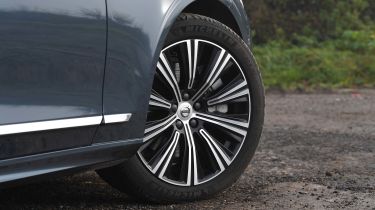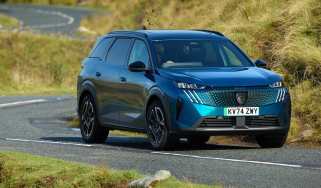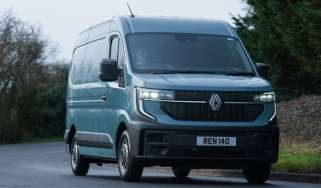BMW 530e vs Audi A6 TFSI e vs Volvo S90 Recharge: safety and reliability
Option packs must be added to all three cars here if you want a full suite of the latest safety kit, but basic crash protection and build quality are solid across the board

Executive cars like these have long been known for featuring extensive lists of optional extras, making it easy to add thousands to their purchase price with just a few box ticks. It's slightly disappointing to see some of the latest safety kit requires you to pay extra in some cases, but at the same time all three models have a decent independent crash-test rating in standard form, with five stars from Euro NCAP all round.
The BMW gets parking sensors, a parking camera and autonomous braking is included, but you (or your company) need to spend £4,995 on the 'Technology Plus Pack' to add adaptive cruise with active lane guidance, front and rear cross-traffic alert, collision warning, lane-departure warning with lane-keeping assistance and evasive steering assistance.
In the Audi, you get pedestrian detection, autonomous braking, lane-departure warning and lane-keeping assistance as standard – but again there's more to be added if you venture on to the options list. The £1,375 City Assist Pack adds blind-spot and cross-traffic alerts, while the £1,950 Tour Pack features semi-autonomous adaptive cruise control, traffic-sign recognition and automatic high beams.
Volvo, meanwhile, charges £500 for a Driver Assist Pack on the S90; this features blind-spot warning with steering assistance, cross-traffic alerts and collision warnings. Elsewhere, reported customer satisfaction for the German brands here is disappointing. In the 2020 edition of the Driver Power car owner survey, out of 30 brands ranked, Audi was placed 21st and BMW 27th. Volvo did better, cracking the top 10 overall.


